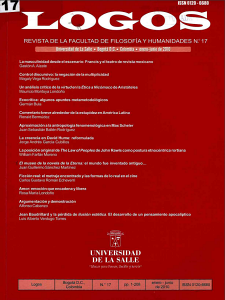Abstract
The present article exposes the reasons which Jean Baudrillard says that it there is a loss of aesthetic illusion in the art-object of the simulation. Those reasons would prevent to the new artistic piece the chance to generate a symbolic level and it would lead to disappearance of the art. That is the reason which Baudrillard’s thought is designated apocalyptic. The article’s hypothesis is that the loss of aesthetic illusion announced by Baudrillard can be understood analyzing the way in that technology transforms the experience between the men and the objects in the capitalist system. Thus, in terms of method, the artistic image is seen like a sign-object inside the society and it is in the middle of two ways to mean the experiences: the representation and the simulation. In the margin of the thesis’s results, which are the foundation of this text, the article’s final section recommends to pay attention to a double apocalyptic condition in Baudrillard, this with the purpose to realize that the French sociologist doesn’t deny the possibility to find in the technologic process the ironic return of the illusion.Downloads
Download data is not yet available.



